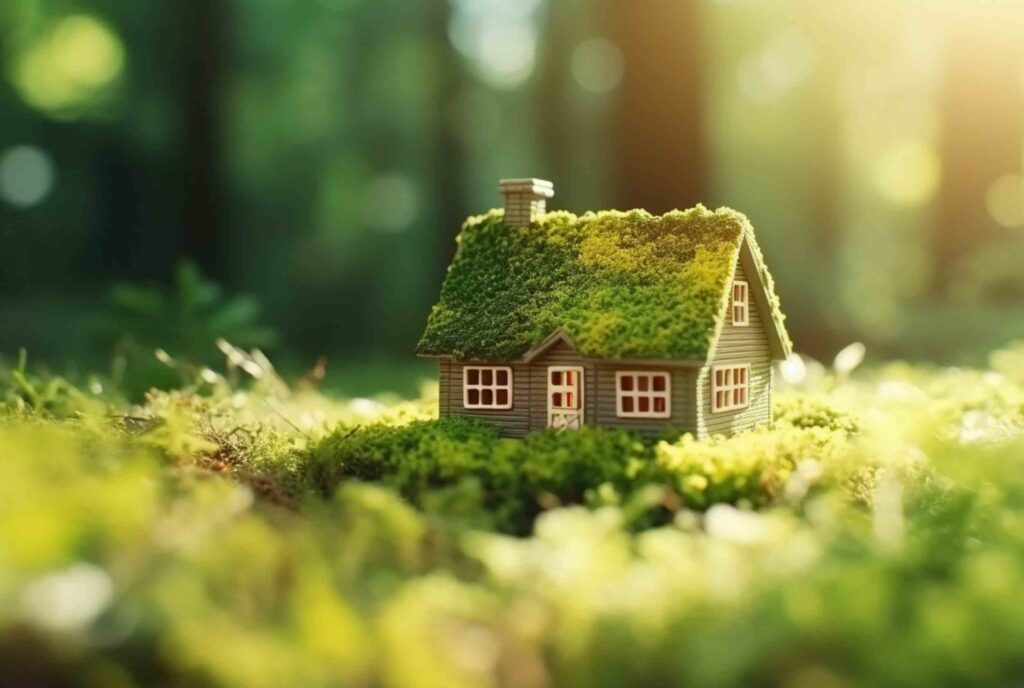In the dynamic landscape of property ownership, the call for sustainable practices and eco-friendly initiatives has grown louder, echoing the global commitment to environmental responsibility. For landlords in the UK, embracing eco-friendly property upgrades not only aligns with the prevailing ethos of environmental consciousness but also brings about numerous benefits, ranging from cost savings to increased property value. In this comprehensive guide, we will delve into practical and effective eco-friendly upgrades for rental properties. This guide aims to provide landlords including those utilising property management services the knowledge and inspiration required to turn their properties into more environmentally friendly and attractive spaces for tenants who prioritise sustainability. This includes a spectrum of enhancements, from energy-efficient upgrades to the integration of sustainable materials.
Energy-Efficient Heating and Cooling Systems:
Leading the way in eco-friendly property enhancements are energy-efficient heating and cooling systems. The investment in contemporary, energy-saving boilers, intelligent thermostats, and properly maintained HVAC systems not only diminishes the property’s carbon footprint but also results in significant cost savings for both landlords and tenants. Furthermore, advocating for the use of energy-efficient appliances enhances sustainable living practices and establishes the property as environmentally responsible.
Solar Panels and Renewable Energy Sources:
Harnessing the power of the sun through solar panels is a game-changing eco-friendly upgrade. Installing solar panels on the property’s roof can generate clean, renewable energy, reducing reliance on traditional power sources and potentially lowering electricity bills. Examine governmental incentives and subsidies for solar installations, transforming it into a financially feasible and environmentally responsible investment. Additionally, evaluate the potential integration of alternative renewable energy sources like wind turbines or small-scale hydropower, where practical.
Water Conservation Technologies:
Water conservation is a crucial aspect of eco-friendly property management. Installing low-flow faucets, dual-flush toilets, and water-efficient irrigation systems helps minimise water wastage. Landlords can also consider rainwater harvesting systems to collect and reuse rainwater for landscaping purposes. These technologies not only contribute to environmental sustainability but also position the property as eco-conscious, appealing to tenants who prioritise water conservation.
Sustainable Building Materials and Insulation:
Opting for sustainable building materials and insulation is a cornerstone of eco-friendly property upgrades. Explore materials with minimal environmental impact, such as bamboo flooring, recycled steel, or reclaimed wood. Moreover, investing in top-tier insulation enhances energy efficiency, lowers heating and cooling expenses, and elevates the overall comfort of the property. Sustainable materials not only foster a more environmentally friendly setting but also introduce a distinctive and appealing aesthetic to the property.
Smart Home Technology for Energy Management:
Incorporating smart home technology enhances energy management and efficiency. Intelligent thermostats, lighting systems, and home automation devices provide the capability for accurate control and monitoring of energy usage. Landlords can promote the adoption of these technologies among tenants, equipping them with the means to actively engage in sustainable living practices.
Green Roof and Vertical Gardens:
Transforming unused roof space into a green roof or installing vertical gardens brings nature into urban living environments. Green roofs provide insulation, absorb rainwater, and create habitats for wildlife. Vertical gardens not only improve air quality but also add aesthetic appeal to the property. These eco-friendly upgrades contribute to biodiversity, enhance the overall well-being of residents, and create a unique selling point for the property.
Waste Reduction and Recycling Initiatives:
Implementing waste reduction and recycling initiatives is a practical step towards eco-friendly property management. Provide designated recycling bins, educate tenants about recycling practices, and consider composting options. Collaborate with local recycling services to ensure proper disposal of waste materials. By promoting a culture of waste reduction and recycling, landlords contribute to environmental conservation and foster a sense of environmental responsibility among tenants.
Conclusion: A Greener Future for Rental Properties:
As the demand for sustainable living continues to rise, landlords in the UK have the opportunity to lead the way in eco-friendly property management. From energy-efficient systems to sustainable materials and waste reduction initiatives, embracing eco-friendly property upgrades not only benefits the environment but also enhances property value and attracts environmentally conscious tenants. By incorporating these practical and innovative upgrades, landlords can contribute to a greener future while securing the long-term success and appeal of their rental properties. Property management services, with a focus on sustainability, play a pivotal role in guiding landlords through the implementation of eco-friendly upgrades for a more environmentally responsible and tenant-attractive portfolio.


